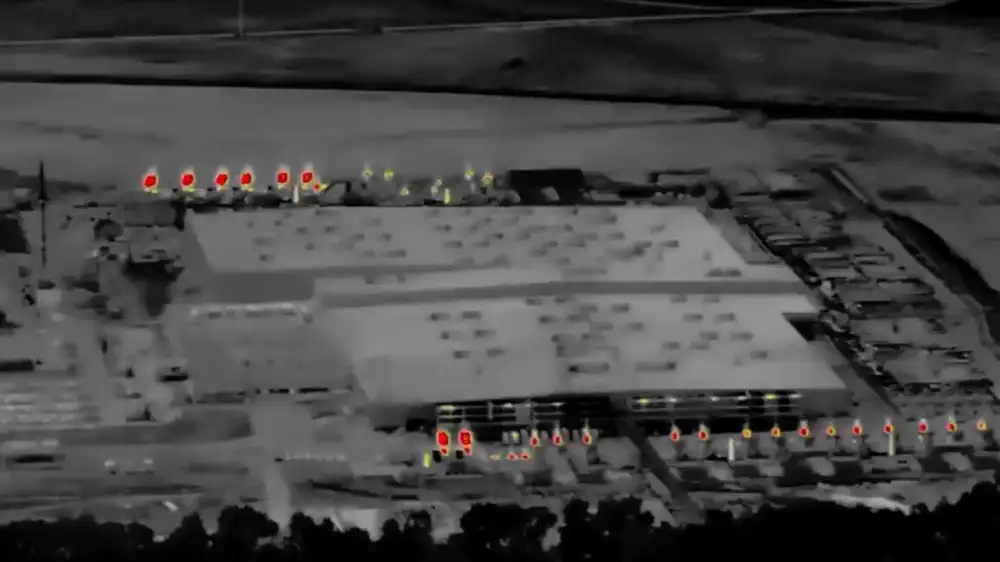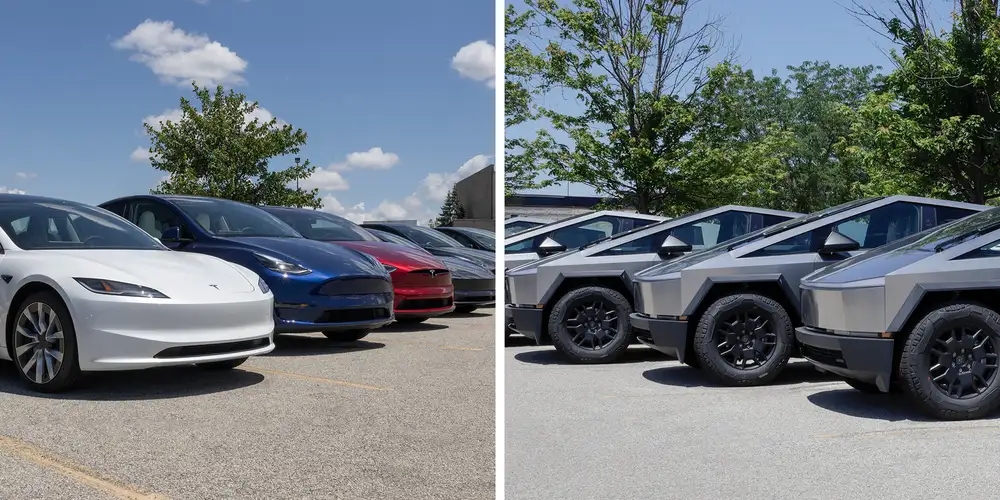After thermal imaging appeared to show that xAI lied about suspected pollution at its Colossus supercomputer data center located near predominantly Black communities in Memphis, Tennessee, the NAACP has threatened a lawsuit accusing xAI of violating the Clean Air Act.
In a letter sent to xAI on Tuesday, lawyers from the Southern Environmental Law Center (SELC) notified xAI of the NAACP's intent to sue in 60 days if xAI refuses to meet to discuss the groups' concerns that xAI is not using the requisite best available pollution controls. To ensure there's time for what the NAACP considers urgently needed negotiations ahead of filing the lawsuit, lawyers asked xAI to come to the table within the next 20 days.
xAI did not respond to Ars' request to comment on the legal threat or accusations that it has become a major source of pollutants in Memphis.
xAI accused of ignoring Black communities’ concerns
According to the NAACP's letter, xAI's ambitions to build the world's largest AI data center in Memphis has potentially introduced the largest source of nitrogen oxides (NOx), reducing air quality in a city already grappling with high rates of emergency room visits and deaths from asthma. In Boxtown, a neighborhood closest to the data center, residents face "cancer risk four times the national average," due to "industrial pollution from dozens of industrial facilities, including an oil refinery, a steel mill, and a TVA gas plant." The letter stressed that all estimates of xAI's suspected pollution levels were "based on the most conservative emission factors," emphasizing that the situation may be even worse than the NAACP suggests.
Because of Memphis' history of exceptionally poor air quality, any new source of pollutants requires permitting and emissions testing. The NAACP and SELC allege that, in its rush to power its supercomputer, xAI did not seek or conduct either of those prior to running methane gas turbines without proper controls.
"xAI’s decision to install and operate dozens of polluting gas turbines without any permits or public oversight is a clear violation of the Clean Air Act," SELC Senior Attorney Patrick Anderson said in a press release. "Over the last year, these turbines have pumped out pollution that threatens the health of Memphis families. This notice paves the way for a lawsuit that can hold xAI accountable for its unlawful refusal to get permits for its gas turbines."
The SELC has been monitoring xAI's facility since last summer when xAI began its operations in Memphis. They alleged that very little was known about xAI's turbines until aerial imaging revealed 35 turbines at the site in March. Wondering if those turbines were possibly operational despite xAI claims they were not, the group conducted thermal imaging in April that SELC alleged "showed that nearly all of the turbines were emitting significant amounts of heat, indicating they were running."
Follow-up thermal imaging in June showed that xAI removed "some smaller-sized turbines" from the site but replaced them with three larger turbines. As of June 15, the most recent "satellite images show at least 26 turbines are still present," the NAACP's letter said, all seemingly operating without the best available pollution controls.
xAI knows it can reduce pollution, groups say
For some Memphis residents wondering how xAI's facility might impact their quality of life, xAI appeared to be secretive about the turbines, claiming they were temporarily exempt from permits but providing little detail about the exemption.
Nobody even knew "the makes and models of all turbines at xAI" until the March imaging, making it hard to calculate pollution risks. Once the makes and models were known, the NAACP noted that xAI's consultant confirmed that xAI had not yet installed add-on air pollution control technology to 15 turbines that seemingly could be operated more safely. The NAACP alleged the add-on tech would make a big difference.
"For instance, if all the 35 turbines operated by xAI were using" add-on air pollution control technology "to achieve a NOx emission rate of 2 ppm"—as xAI's consultant agreed it would—"they would emit about 177 tons of NOx per year, as opposed to the 1,200 to 2,100 tons per year they currently emit," the letter said.
Allegedly, all of xAI's active turbines "continue to operate without utilizing best available control technology" (BACT) and "there is no dispute" that since xAI has yet to obtain permitting, it's not meeting BACT requirements today, the letter said.
"xAI’s failure to comply with the BACT requirement is not only a Clean Air Act violation on paper, but also a significant and ongoing violation that is resulting in substantial amounts of harmful excess emissions," the letter said.
Additionally, xAI's turbines are considered a major source of a hazardous air pollutant, formaldehyde, the letter said, with "the potential to emit more than 16 tons" since xAI operations began. "xAI was required to conduct initial emissions testing for formaldehyde within 180 days of becoming a major source," the letter alleged, but it appears that a year after moving into Memphis, still "xAI has not conducted this testing."
Terms of xAI’s permitting exemption remain vague
The NAACP and SELC suggested that the exemption that xAI is seemingly operating under could be a "nonroad engine exemption." However, they alleged that xAI's turbines don't qualify for that yearlong exemption, and even if they did, any turbines still onsite after a year would surely not be covered and should have permitting by now.
"While some local leaders, including the Memphis Mayor and Shelby County Health Department, have claimed there is a '364-exemption' for xAI’s gas turbines, they have never been able to point to a specific exemption that would apply to turbines as large as the ones at the xAI site," SELC's press release alleged.
In a statement, NAACP President Derrick Johnson accused xAI of ignoring serious health concerns of Black neighborhoods demanding assurances their air quality won't suffer from xAI's supercomputer. And their neighbors in another community near xAI's second planned data center share their concerns, since xAI allegedly "has not said how that facility would be powered" and residents fear that means xAI could be installing even "more polluting gas turbines in the Memphis area."
If a lawsuit proceeds, the NAACP plans to hold xAI accountable for alleged past and ongoing violations of the Clean Air Act, as well as other laws intended to protect Memphis residents. And if xAI loses, it could face an injunction preventing it from operating its turbines and potentially slowing down its progress with Colossus. xAI also risks potentially extensive fines for each turbine in violation.
Johnson suggested that the deadlines the NAACP set will be held fast to ensure Memphis residents get the answers they need to breathe easily as soon as possible.
"All too often, big corporations like xAI treat our communities and families like obstacles to be pushed aside," Johnson said. "We cannot afford to normalize this kind of environmental injustice—where billion-dollar companies set up polluting operations in Black neighborhoods without any permits and think they’ll get away with it because the people don’t have the power to fight back. We will not allow xAI to get away with this."

 YouTube is plugging Veo 3 AI videos directly into Shorts
YouTube is plugging Veo 3 AI videos directly into Shorts